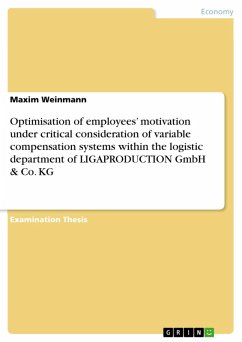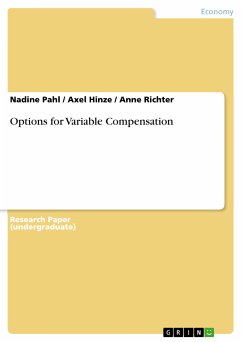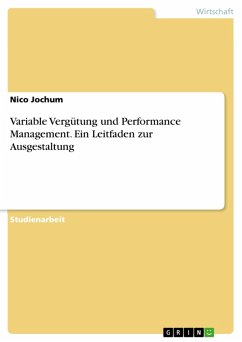Examination Thesis from the year 2015 in the subject Leadership and Human Resources - Miscellaneous, grade: 86%, European College of Business and Management (ECBM) London, course: Human Resource Management, language: English, abstract: LIGAPRODUCTION is a full-service provider that designs, plans, produces and distributes high-quality point-of-sale (POS) items, such as shop-window campaigns, in-store elements and store-construction elements. The company also conducts event productions. Together with our mother company LIGANOVA, an event and marketing agency, we offer unique custom-made items and prototypes as well as large-series productions with worldwide logistics for our national and international clients. We guarantee maximum flexibility and reduced transactions costs while ensuring efficient production for our clients. These benefits stem from our concentration of six different production workshops under one roof, ultra-modern infrastructure and integrated processes and information technology (IT) systems. Throughout the project, our project management team maintains continual contact with our clients and supervises all production workshops. The internal logistics department consists of two handling facilities of approximately 6.000 sqm. Its services include the entire field of logistical campaign planning, including packaging planning, picking and packing (P&P), global shipping, customs declaration and, if required, a montage of promotion elements all over the world. The remainder of this chapter examine the increased challenges of competition within the global logistics market and examines therefore the importance of employees as human resource of an organisation. Chapter two presents an analysis of several motivation theories and furthermore the development of individual bonus pay models. Next, in chapter three, the evaluation of the current situation and motivation in the logistics department of LIGAPRODUCTION as a quantitative data research takes place. Chapter four contains the evaluation of key performance indicators as base for the determination of a bonus system and later on the assessment of advantages and disadvantages of individual bonus systems in the logistics department. This thesis concludes by the implementation of the new bonus wage system and thereof by presenting the structure of this system as well as the beneficiaries in chapter five. The conclusion in chapter six finally gives a brief outlook on future developments and possibilities.
Dieser Download kann aus rechtlichen Gründen nur mit Rechnungsadresse in A, B, BG, CY, CZ, D, DK, EW, E, FIN, F, GR, HR, H, IRL, I, LT, L, LR, M, NL, PL, P, R, S, SLO, SK ausgeliefert werden.









